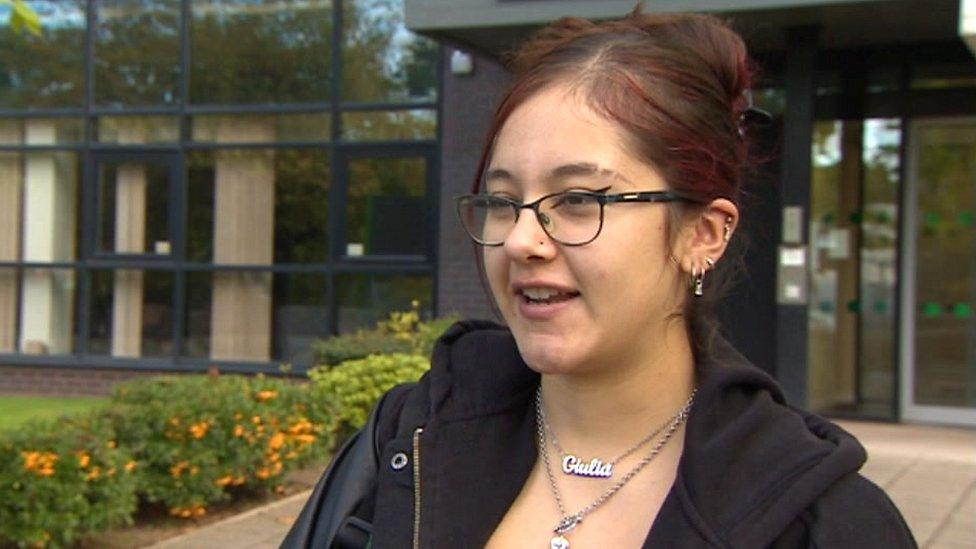Bristol's night time economy takes hit as students save cash
- Published
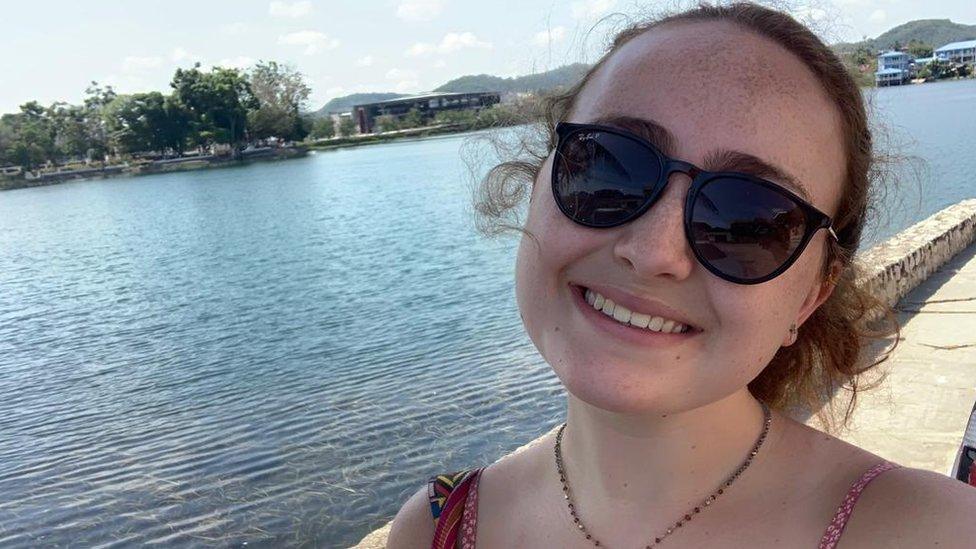
Sofia Webster said rising prices had made Bristol's nightlife "so unbelievably expensive"
The night time economy is taking a big hit as students try to save money, says one of Bristol's biggest nightclubs.
Students are struggling as the cost of accommodation, food and nights out soars due to the cost of living crisis.
Mike Hollingshead from Lakota nightclub, which relies heavily on students, said bar spend was down by about 25%.
Students are "really vital" to Bristol's nightlife, according to the night time economy advisor Carly Heath.
Ms Heath said students not only provide much of the city's night time audience, "but they also work behind our bars, in our restaurants and are a really core component to our flourishing night time scene".
Most students the BBC spoke to said it was common for them to not buy drinks on a night out to save money.
"Because there are many clubs around Bristol that are just incredibly expensive," explained Sofia Webster, a first year student at the University of Bristol.
"It definitely is piling on. I've definitely noticed as a student how expensive everything has become," she said.
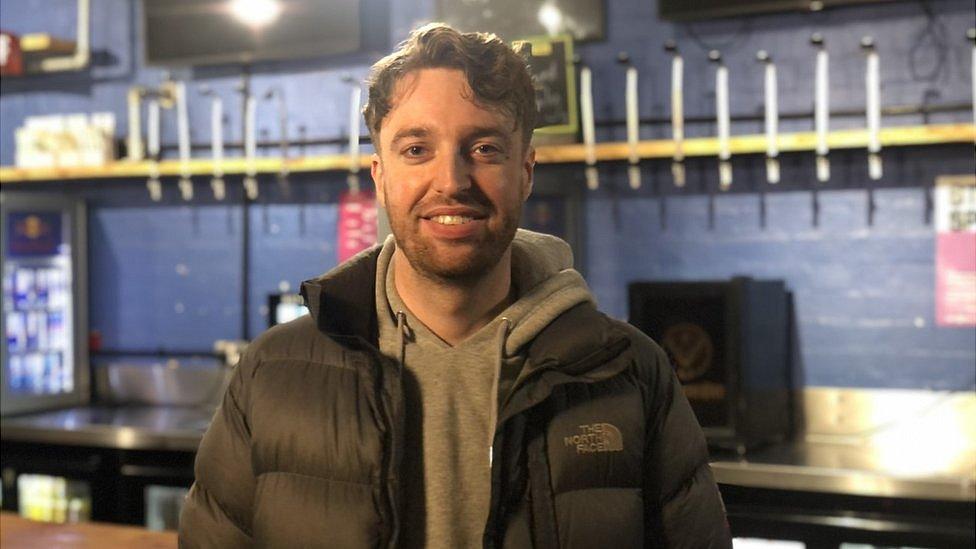
Mike Hollingshead said Lakota had frozen its prices "to ensure people can still enjoy themselves and go out"
Mr Hollingshead said Lakota was feeling the effect of students spending less, combined with rising operational costs.
"Bar spend is about 25% less than what we saw last year," he explained, adding that attendance was also down by about the same.
"We rely heavily on students. Obviously, going out is a luxury and it's something we don't all have to do but it's really important for young people, their mental health and social wellbeing.
"We'll get through this but it just makes our lives a bit harder and we have to put in more work and be a lot more careful."
He said after speaking to other local venues, it was "similar elsewhere"
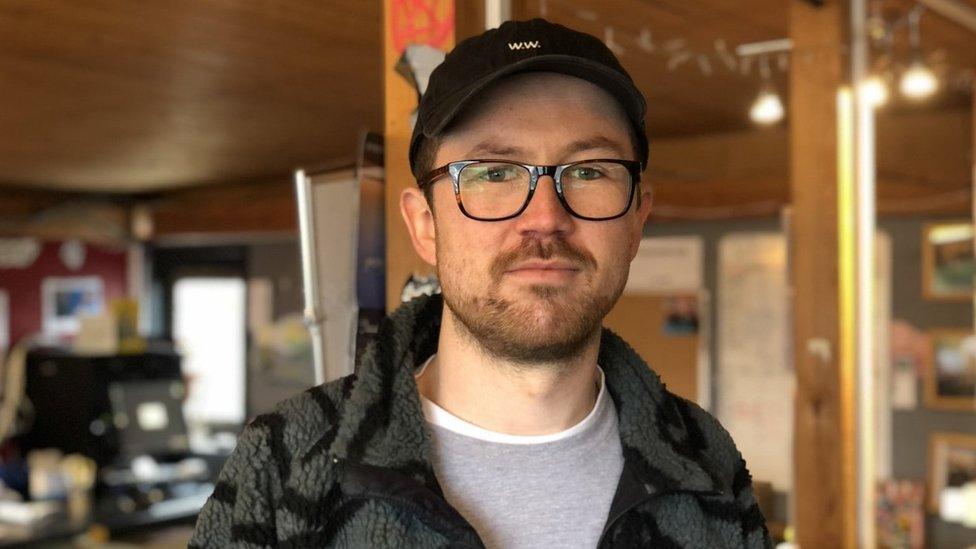
"Freshers' week we got a bit worried with spend-per-head," said Thekla's promotions manager Will Paintin.
Thekla, which runs two of the city's biggest student nights, said business was not bad but there had been some concerning moments.
General manager Alex Black explained that two Freshers' events in September were "some of the lowest I've ever seen", with students spending an average of £5 per head on each night, opposed to the usual £9.
"The rest hasn't been quite as drastic but certainly a drop on the usual, especially compared to the post-lockdown glory days of 2021," he said.
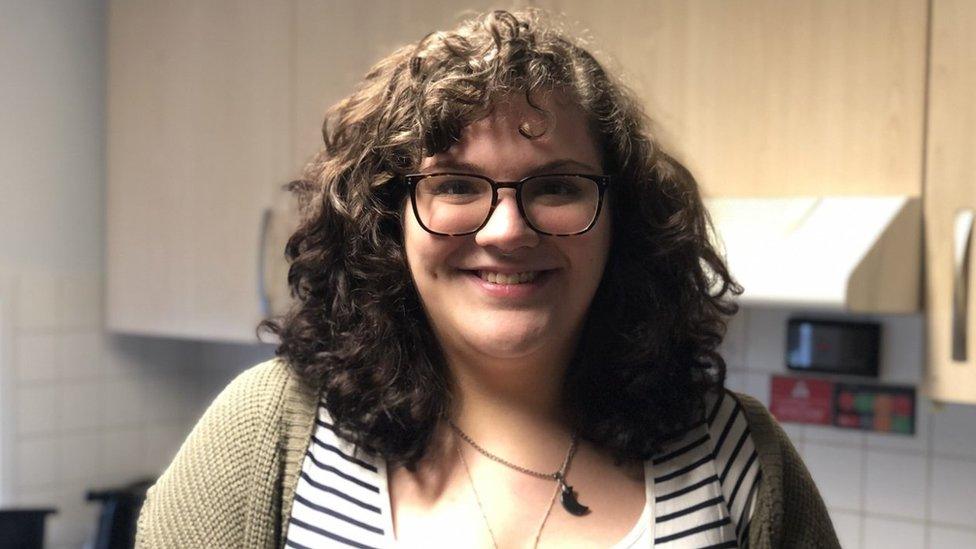
Student Amy Peckham said the past few months had been "horrendous"
This is the third winter in a row that Bristol, which homes around 60,000 students, has experienced a decrease in trading.
14% decreaseLess money is being spent in Bristol at restaurants and bars
64% decreaseLeisure and entertainment spending down
54% decreaseClothing sales down by more than half compared to the same period in 2021
"If students don't have as much money in their pockets and there's not as many shifts behind the bar, then those same students might not also be getting the work that they need to be able to support their lives, so this ecosystem keeps going round," added Ms Heath.
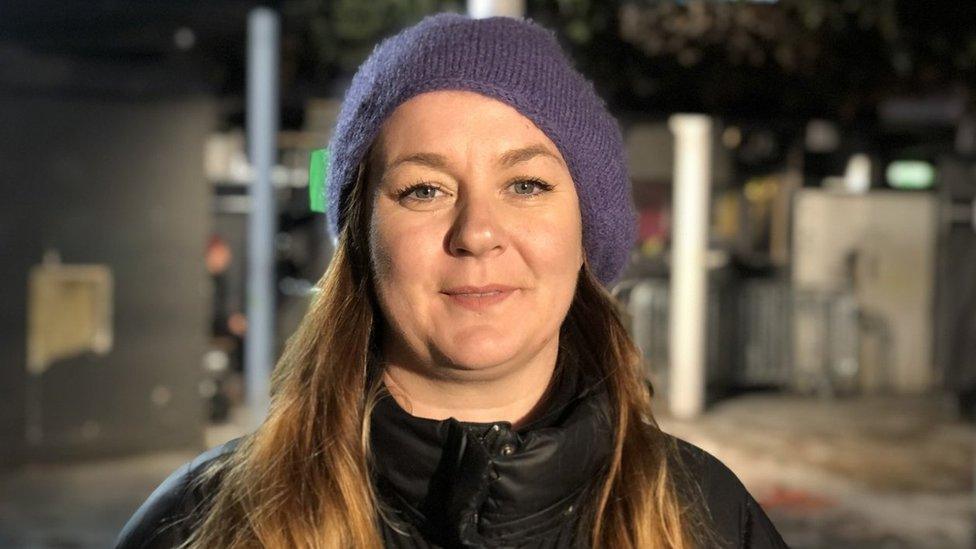
Carly Heath said the impact of the cost of living crisis on Bristol's night time economy was "really significant"
Official figures show half of the students in England are struggling with money and a quarter have taken on new debt, as prices rise at their fastest rate in 41 years.
University of the West of England (UWE) student Amy Peckham, 20, said she had "no money spare".
"I have to scrimp and save to buy able to afford a can of soup… and I can't go to my parents for financial support either because they're also being impacted by this crisis.
"Generally, being able to kind of do nice stuff like take a trip into town, go to the cinema, go to McDonalds. That's not even an option any more, which, frankly, sucks."
Allow X content?
This article contains content provided by X. We ask for your permission before anything is loaded, as they may be using cookies and other technologies. You may want to read X’s cookie policy, external and privacy policy, external before accepting. To view this content choose ‘accept and continue’.

Follow BBC West on Facebook, external, Twitter, external and Instagram, external. Send your story ideas to: bristol@bbc.co.uk
Related topics
- Published21 September 2022
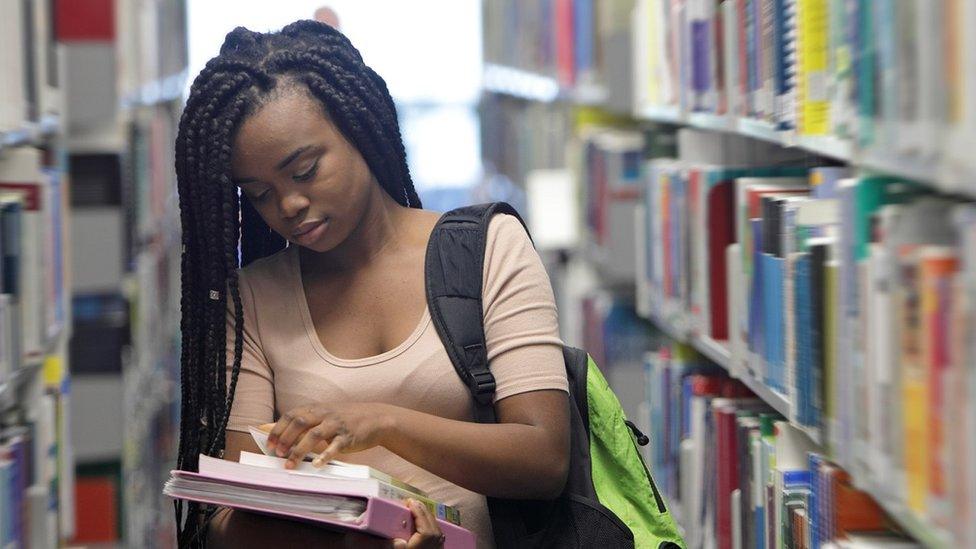
- Published23 November 2022
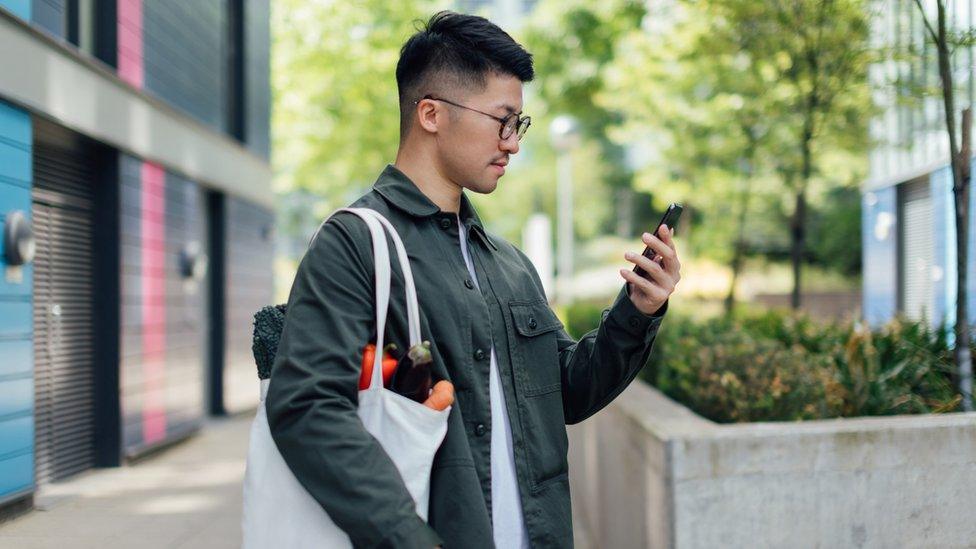
- Published1 September 2022
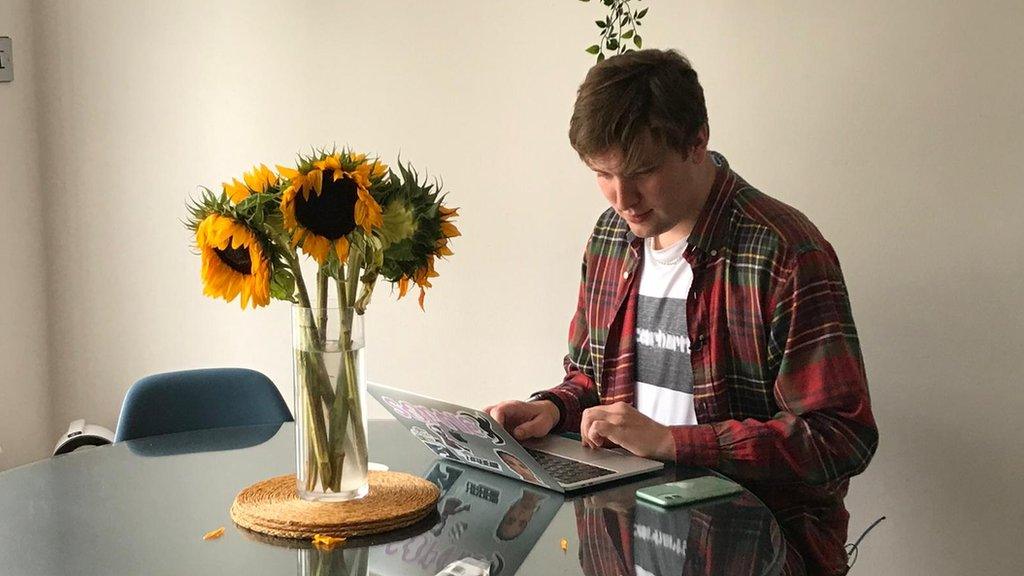
- Published12 December 2022
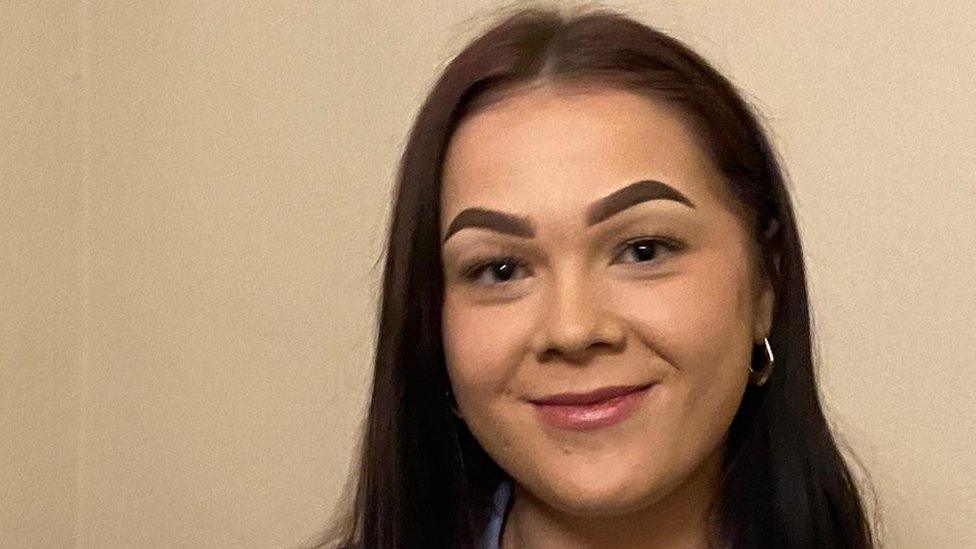
- Published17 October 2022
